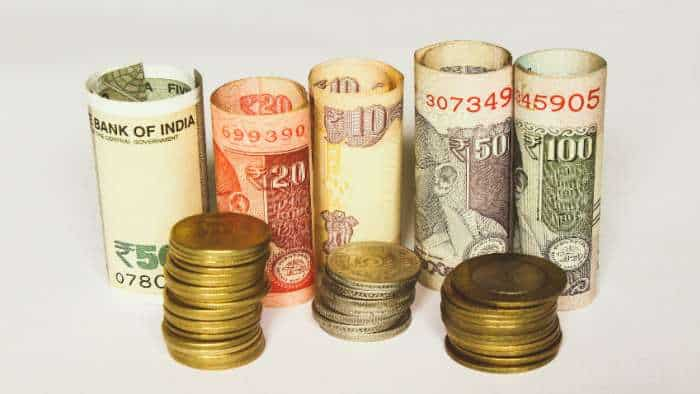Toyota speeds up electric vehicle schedule as demand heats up
The key to creating a profitable battery EV operation could be in combining new mobility technologies, including on-demand ride services, with battery-powered electric cars, he said.

Toyota Motor Corp aims to get half of its global sales from electrified vehicles by 2025, five years ahead of schedule, and will tap Chinese battery makers to meet the accelerated global shift to electricity-powered cars.
The change illustrates the breakneck growth in the electric vehicle (EV) market, which is transforming the auto industry, and is also an acknowledgment by Japan`s top car maker that it may not be able to meet demand for batteries on its own.
Toyota is now faced with a higher-than-expected demand for cars that use batteries, rather than gasoline, Executive Vice President Shigeki Terashi told a briefing on Friday.
Also, increasingly stringent emissions regulations require more lithium-ion batteries in the next five years than the automaker plans to produce, he added.
"We consider ourselves as a maker of electric vehicle batteries, going back to when we developed the battery for the Prius," he said, referring to the pioneering gasoline hybrid.
"But there may be a gap between the amount of batteries we can produce, and the amount of batteries we may need."
Toyota, which already makes batteries for hybrids and hybrid plug-ins, said it will partner with China`s Contemporary Amperex Technology Co Ltd (CATL) and EV maker BYD Co Ltd for battery procurement.
It also announced an ultra-compact two-seater designed for short-distance trips, with a maximum speed of 60 km (37 miles) per hour and 100 km range on a single charge.
However, Terashi said while demand for EVs grows, profits will be slower in coming, given the economies of scale.
EV technology has come a long way since 2010, with battery technologies improving and costs coming down.
Still, EV sales are expected to trail gasoline hybrid vehicle volumes by 2025, with the former expected to be fewer than 1 million vehicles, Terashi added.
PROCUREMENT POOL
The key to creating a profitable battery EV operation could be in combining new mobility technologies, including on-demand ride services, with battery-powered electric cars, he said.
Tapping CATL signals a widening of Toyota`s procurement pool. The Chinese firm already has relationships with other automakers such as Honda Motor, Nissan and a multi-billion dollar battery supply deal Volvo Car Group.
Toyota has for decades been developing its own lithium-ion EV battery technology and has partnered with Panasonic to develop and make rectangular-shaped prismatic batteries.
The automaker, which launched the Prius, the world`s first mass-market "green car" over two decades ago, has led in technologies for hybrid and fuel cell vehicles (FCVs). Its cars account for more than 80% of the global hybrid vehicle market.
But it has trailed rivals such as Nissan Motor, Volkswagen and Tesla in bringing all-battery EVs to showrooms.
Toyota is looking to partnerships with rival automakers and tech firms as it seeks to reduce its capital outlay for developing new-vehicle technologies.
On Thursday, it announced it was teaming with Subaru Corp to develop a battery-electric SUV on a platform produced together as they seek to split costs.
Toyota is, however, not changing its long-held belief that hydrogen FCVs will be the ultimate zero-emissions vehicles in the future, Terashi said.
"We haven`t changed our policy towards battery EVs," Terashi said. "We are not shifting our focus to prioritise battery EVs, nor are we abandoning our FCV strategy."
The firm has also long espoused the benefits of hybrids and how they are an effective alternative to all-battery EVs, given a fuel efficiency roughly double that of gasoline cars, lower cost and that they do not need charging infrastructure.
Get Latest Business News, Stock Market Updates and Videos; Check your tax outgo through Income Tax Calculator and save money through our Personal Finance coverage. Check Business Breaking News Live on Zee Business Twitter and Facebook. Subscribe on YouTube.
RECOMMENDED STORIES

Rs 55 lakh Home Loan vs Rs 55 lakh SIP investment: Which can be faster route to arrange money for Rs 61 lakh home? Know here

Top 7 Flexi Cap Mutual Funds With up to 52% SIP Return in 1 Year: Rs 20,000 monthly SIP investment in No. 1 fund has generated Rs 3.02 lakh; know about others too

Latest FD Rates: Know what SBI, PNB, Canara Bank, HDFC Bank, ICICI Bank are providing on 1-year, 3-year and 5-year fixed deposits
05:25 PM IST








 Toyota's scandal-hit unit Daihatsu revamps small car business structure
Toyota's scandal-hit unit Daihatsu revamps small car business structure Toyota agrees to biggest wage hike in 25 years, paves way for BOJ shift
Toyota agrees to biggest wage hike in 25 years, paves way for BOJ shift Toyota's global output rises by 7% in January
Toyota's global output rises by 7% in January Toyota holds off response on wage talks after first round
Toyota holds off response on wage talks after first round Toyota hikes annual profit forecast after Q3 beats expectations
Toyota hikes annual profit forecast after Q3 beats expectations